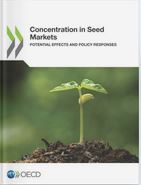 Topics Topics |
|
|
|
 Species Species |
|
|
|
|
|
Cameroon and the International Institute of Tropical Agriculture (IITA) to step up efforts to improve the fortunes of farmers
Ibadan, Nigeria
September 20, 2012
Cameroon and the International Institute of Tropical Agriculture (IITA) have agreed to join forces more than ever before to improve agriculture, create wealth and reduce poverty in both rural and urban areas.
The Central African country pledged to work more closely with IITA to tap the vast agricultural innovations and technologies with a view to shrinking yield gaps, and improving productivity.
The Cameroonian Minister of Agriculture, Mr. Essimi Menye reaffirmed his country’s decision during the four-day visit of the Director General of IITA, Dr Nteranya Sanginga.
Mr. Menye commended IITA for the support given to his country over the past years that has seen improvements in the yield of crops such as cassava.
He also thanked IITA for providing his country with improved maize varieties and praised the Institute’s efforts in combating crop pests and diseases.
The agriculture minister said he was impressed with IITA’s cassava value addition efforts in Nigeria and would visit IITA’s headquarters in Ibadan, in the near future, to see for himself innovations that could benefit his country.
The Director General of IITA, Dr Nteranya Sanginga promised that IITA would continue to help grow Cameroonian agriculture in a manner that the country becomes a major player in Central Africa.
He said the Institute’s new research agenda provided an opportunity for Cameroon and other tropical countries to tap innovations that would improve the livelihoods of farmers, eradicate poverty in the region and also tackle the growing unemployment among youths.
According to him, the Institute’s new strategy offers more emphasis on research, capacity building and training, which are prerequisite for sustainable agricultural development.
At the moment, gaps exits in the productivity of many crops in Cameroon. For instance, local varieties of cassava have yields of less than 10 tons per hectare, compared with improved varieties that offer up to 30 tons per hectare.
Between 2000 and 2010, IITA-improved varieties disseminated to farmers helped the country to raise production from 1.9 million tons to 3 million tons according to the Food and Agriculture Organization (FAO).
Dr Sanginga said if the Cameroonian government and IITA step up team efforts and commit more resources to agriculture, the country could realize more than the 3 million tons per annum figure.
Supports to work with international agricultural research institutes also came from the Ministry of Research and Scientific Innovations.
The Permanent Secretary, Ms Ebelle Etame Rebecca, said IITA ‘is a reliable partner’ in finding solutions to agricultural problems.
She said the ministry through the Institute of Agricultural Research for Development (IRAD) would continue to partner with IITA such that Cameroon becomes a food secured nation.
The Minister for External Relations, Mr. Pierre Moukoko Mbonjo said that the government would provide support to IITA’s station in Cameroon with a view to ensuring that the station serves not just Cameroon but also the whole of the Central African sub region.
Dr Sanginga also met with representatives of the International Fund for Agricultural Development (IFAD), German Agency for International Cooperation (GIZ), and the Federal Ministry for Economic Cooperation and Development (BMZ). The IITA Director General was also received by the United States Ambassador to Cameroon.
In all the visits and discussions, Dr Sanginga was accompanied by the IITA-Country Representative for Cameroon, Dr. Rachid Hanna.
Established 23 years ago, the IITA-Station in Cameroon conducts research for development in agriculture – including crop improvement, crop protection, natural resource management, and commercialization – in Cameroon and other countries in the Central Africa.
More news from: IITA (International Institute of Tropical Agriculture)
Website: http://www.iita.org Published: September 20, 2012 |
|
|
|
Better Food Venture's
AgTech Landscape 2019

|
| |
|
2019 THRIVE Top 50
landscape map

|
| |
|
Concentration in Seed Markets - Potential Effects and Policy Responses

(OECD December 2018)
|
|
Visualizing Consolidation
in the Global Seed Industry
1996–2018

Seed Industry Structure
1996-2018
Phil Howard
Associate Professor
Michigan State University
|
|
2017 Seed Company Family Tree
Ccreated Septebmer 2017
by Robert Walsh
WaSoo Farm, Elk Point, South Dakota |
 |
Syngenta Brands Family Tree
Ccreated January 2017 by Robert Walsh, WaSoo Farm, Elk Point, South Dakota
|
 |
| |
Rabobank's
World Vegetable Map 2018 |
 |
|
|